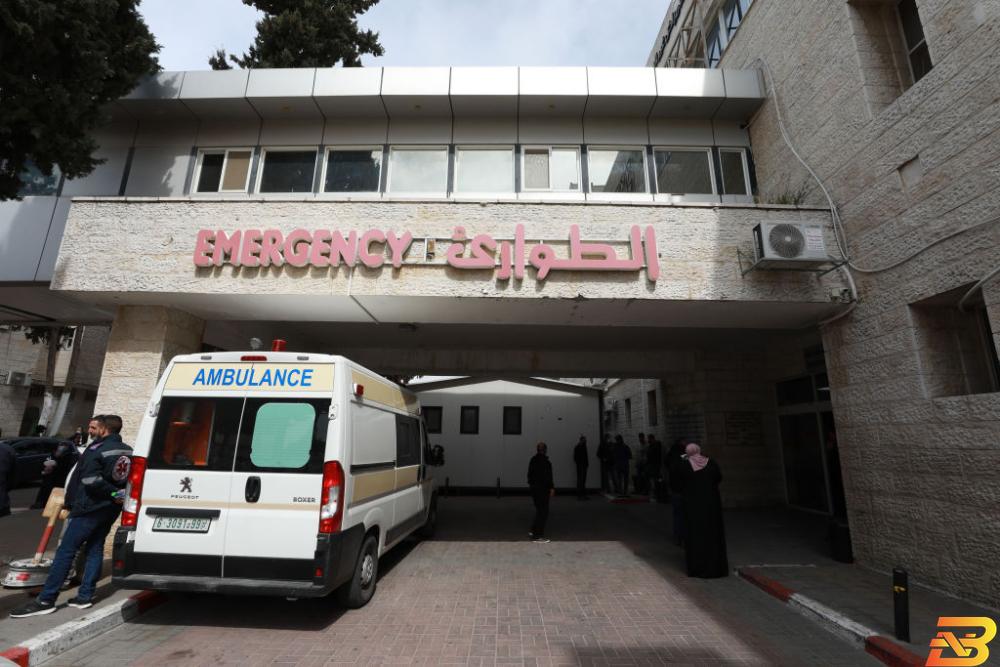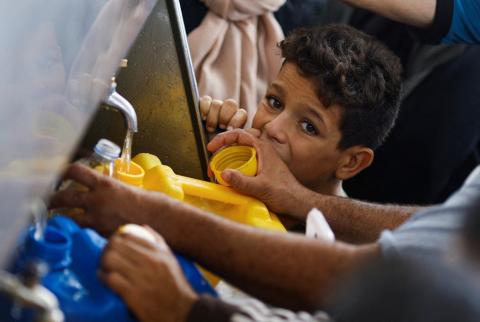
RAMALLAH-(BNEWS) – The suffocating financial crisis facing the Palestinian government has cast heavy shadows on many vital sectors, both governmental and private, with its dangerous ramifications threatening the collapse of some.
The financial crisis worsened after October 2023, when the extremist Israeli Minister of Finance Bezalel Smotrich decided to withhold clearance funds transferred by the Palestinian government to the Gaza Strip. This decision, along with previous illegal deductions from tax revenues, including withholding allowances for the families of martyrs and prisoners, exacerbated the crisis.
The Israeli occupation government withholds over 6 billion NIS of tax revenues, which are collected by Israeli financial authorities on goods imported monthly and transferred to the Palestinian Ministry of Finance.
The financial crisis has impacted the funding of the Ministry of Health's budget, negatively affecting the healthcare sector in Palestine. This has affected operational capacity, supply, and even the essential stock of medicines and medical supplies in the central warehouses of the ministry.
The World Bank, in a report issued on December 18, 2023, stated that "constraints on public finances weigh heavily on the Palestinian health system, especially on its ability to deal with the increasing burden of non-communicable diseases. Many obstacles to providing healthcare have made the external medical referral system for treatment in non-Palestinian hospitals a complex process, negatively affected by restrictions on the movement of Palestinian patients and a bureaucratic permit system that takes a long time. This often makes it extremely difficult to provide adequate or life-saving healthcare in a timely manner."
Deputy Minister of Health Wael Al-Sheikh confirmed to WAFA News Agency that the financial crisis has catastrophic implications for the Palestinian healthcare sector and has serious repercussions on the ministry's ability to fulfill its obligations to patients, especially those with chronic and serious diseases, in terms of providing medications and medical services. Moreover, a large number of medications are currently missing from the central warehouses of the ministry.
He added that the high cumulative debt of the Ministry of Health, which amounted to more than 2.7 billion shekels as of May 28, 2024, has negatively affected the ability of supplying companies to provide various types of medicines, medical supplies, and laboratory materials. This has resulted in shortages of inventory for many items, some of which have reached zero stock (whether medicines, medical supplies, or laboratory materials).
The shortage of medicines and the inability to provide certain pharmaceuticals have forced the Ministry of Health to rely more on transferring patients for treatment in private hospitals, leading to an increase in transfer costs and service procurement.
He pointed out that the pressure on private hospitals has also led them to face internal financial crises due to the Ministry of Health's inability to meet its financial obligations to them and the increase in the number of patients and visitors beyond their capacity.
Al-Sheikh explained that this crisis has negatively affected these hospitals' ability to secure salaries for their employees and provide all types of medicines and medical supplies for treating patients referred to them by the ministry.
He also noted that some of the most affected non-governmental hospitals include the hospitals in East Jerusalem, especially the Islamic Charitable Hospitals and the Augusta Victoria Hospital, specialized in cancer treatment, which are among the largest referral centers for the Ministry of Health. At the same time, these hospitals heavily rely on service procurement transfers from the ministry.
The World Bank, in a report issued on December 18, 2023, stated that due to the high prices imposed by private hospitals and hospitals affiliated with civil society organizations, the external medical referral system consumes a large portion of the Ministry of Health's expenses, leading to unsustainable expenditure rates and thus additional pressure on public finances already under strain.
In the pharmaceutical sector, the availability of medicines and medical supplies in the warehouses of the Ministry of Health has decreased, and many essential types necessary for saving the lives of hundreds of patients in hospitals and ministry warehouses, including specific cancer drugs and kidney dialysis, among others, have run out, posing a real threat to the lives of these patients.
Al-Sheikh pointed out that the inability to supply medical supplies and laboratory materials to intensive care units and other vital departments in hospitals has negatively affected the quality of medical services and patient safety at times, leading to an increase in patient transfers to private and charitable sectors.
He mentioned that "some government hospitals, due to the current crisis, have created long waiting lists for surgical operations, even though some are urgent and emergent. At the same time, the ministry will not be able to continue transferring some of these cases to private and charitable hospitals due to the accumulated debts on them."
He further noted that "pharmaceutical and medical supply companies have recently become unable to supply all orders to the Ministry of Health due to accumulated debts owed to them."
Al-Sheikh said, "Because of this situation, there are 78 out of 592 drug types that have reached zero balance in the central warehouses, accounting for 13% of essential drugs, and 138 out of the available drugs in the central warehouses have a balance sufficient for less than a month."
As for medical supplies and laboratory materials, Al-Sheikh mentioned that 605 out of 3,330 types of general medical supplies, representing 18%, have zero balances in the ministry's warehouses, along with 153 out of 618 types of surgical medical supplies, representing 25%, and 25 out of 200 types of laboratory materials, representing 12.5%, all of which have zero balances in the ministry's warehouses.
This situation has added a new financial burden on service recipients, who are forced to turn to private pharmacies to obtain the required medications. Many of them may not be able to afford them given the deteriorating economic conditions and reduced salaries of employees.
For the third consecutive year, the government cannot meet its obligations to public sector employees and pay part of their monthly salaries due to the ongoing financial crisis and the increase in Israeli deductions from tax revenues or the suspension of their transfer. This has affected the quality of services provided to patients. Doctors are required to continue their work on a daily basis despite not receiving their full salaries, while there is increased demand for government hospitals and clinics, far exceeding their capacity, due to health insurance and the provision of free treatment for the elderly and children under five.
To overcome the current crisis, Al-Sheikh said, "We don't have a magic wand, but at the same time, we need urgent and rapid solutions to finance the health sector, reduce the debt, and support the sustainability of the supply of medicines, medical supplies, and laboratory materials, as the current situation threatens the collapse of the health sector."
Al-Sheikh emphasized that Health Minister Majed Abu Ramadan is making strenuous efforts with international health organizations and all international agencies for international cooperation in friendly and sisterly countries to mobilize urgent support and assistance to the ministry amidst the suffocating financial crisis to prevent the collapse of the Palestinian health sector.
He added that Minister Abu Ramadan focused on the necessity of working to immediately stop the aggression in the Gaza Strip and increase medical aid to relieve our people.
Al-Sheikh stated that he maintains constant communication with healthcare providers, whether in private or charitable hospitals and pharmaceutical supply companies, urging them to continue providing their services and work together to overcome this crisis.
He renewed his call on the international community to pressure the occupation government seriously to release the tax revenues and stop financial deductions, emphasizing the need for donor countries to bridge the budget deficit of the government and enable it to manage vital sectors, including healthcare.
He called on international institutions and organizations operating in the health sector to move and work to urgently address the shortage of medicines, medical supplies, and laboratory materials in central warehouses through direct support.
In the West Bank, the occupation targeted the healthcare sector with financial siege, while in Gaza, it has been a primary target for the Israeli war machine during its continuous aggression for about eight months.
According to the statistics of the Ministry of Health, since October 7, 2023, the occupation has launched more than 340 attacks on healthcare facilities and workers, preventing them from obtaining medical supplies, fuel, water, food, and electricity, and destroying the roads leading to them.
The number of martyrs among healthcare workers in Gaza reached 500, hundreds were injured, and more than 310 were detained. Only 9 hospitals out of 36 are partially operational, with 130 ambulances destroyed.
According to the data, the Palestinian healthcare sector in Gaza has collapsed, serving only 15% of the casualties of the aggression. It is unable to treat chronic diseases or address infectious diseases caused by overcrowding in shelters and the destruction of the sewage system.
If Israel continues to withhold tax revenues, which constitute 70% of public financial revenues, all vital sectors are at risk of collapse. Besides healthcare, education has witnessed disruptions in the past two academic years, with students unable to attend classes regularly due to the government's inability to fulfill its obligations towards the employees of the Ministry of Education and Higher Education, who constitute over 57% of the total government workforce, according to statistics from the General Employees' Council. The percentage of workers in the healthcare sector reached 15%.
At the end of May, the World Bank warned that the Palestinian Authority faces the risks of "financial collapse" due to "depletion of revenue flows, sharp decline in Israel's transfers of clearance revenues, and massive decline in economic activity," amidst the continuous Israeli aggression on Gaza since October 2023.
Source: WAFA News Agency







